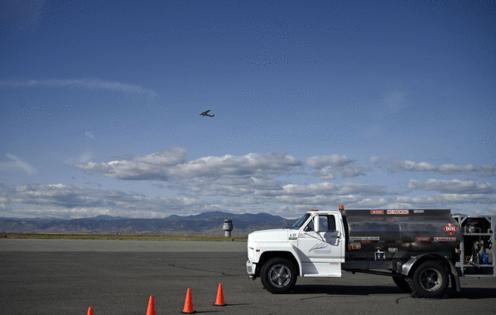Kids living near Colorado airports have slightly elevated levels of lead in their blood, new study finds
Published in Health & Fitness
DENVER — Children living near small airports in Colorado had slightly higher levels of lead in their blood than the statewide average, according to a new study — though experts had diverging opinions on how significant that difference was.
The study, by the Colorado Department of Public Health and Environment, found levels to be within the range the federal government considers normal, and didn’t prove that living near an airport caused the increase in blood lead levels, though levels declined consistently as the distance from an airport increased, reaching the state average at about two miles out.
The researchers also didn’t have enough blood samples to show whether lead levels were particularly high near any of the airports, though the data didn’t suggest any difference, said Dr. Ned Calonge, the department’s chief medical officer.
While lead can affect anyone, young children are most vulnerable. In most cases, lead doesn’t cause any immediately noticeable symptoms, though over time it lowers intelligence scores and increases the risk of hyperactivity and behavior problems. Children experiencing acute lead poisoning, which is rare, may have headaches, stomach pain and weakness.
Aircraft fuel is the largest source of new lead pollution in the country, according to the U.S. Environmental Protection Agency. Certain industries, like battery recycling, also generate lead pollution, while contamination from lead paint and leaded gas still lingers.
Children living within half a mile of a small airport had about 2.29 micrograms of lead in each deciliter of their blood, while all kids who’ve gotten tested statewide averaged 2.08 micrograms per deciliter, Calonge told Westminster’s City Council in March.
Residents of Westminster and other communities around Rocky Mountain Metropolitan Airport, which was one of 12 airports included in the study, have raised concerns about lead pollution and what they say is excessive noise from pilot training at the airport, and both local governments and homeowners have sued Jefferson County over the airport.
Rocky Mountain Metropolitan Airport announced last year that it will switch to unleaded gasoline by 2027, a move that would significantly reduce lead pollution. A federal mandate will require all airports to make the shift by 2030.
The additional lead exposure the study found isn’t likely to be clinically significant, said Gabriel Filippelli, a professor and executive director of Indiana University’s Environmental Resilience Institute. Also, comparing one area to the statewide average may not be useful, he said — children in cities, for example, will always have higher levels of lead in their blood than those who don’t live with accumulated pollution from industry and heavy vehicle traffic.
“The difference between 2.29 (micrograms per deciliter) and 2.08 (micrograms per deciliter) is quite small, and for issues of lead exposure and treatment we typically focus on larger differences,” he said.
...continued
©2024 MediaNews Group, Inc. Visit at denverpost.com. Distributed by Tribune Content Agency, LLC.







Comments